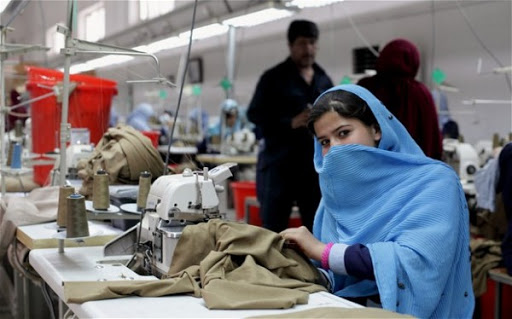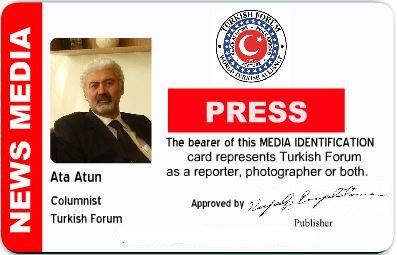Robert Spano, President of the European Court of Human Rights (ECHR), visited Turkey last week at the invitation of the Turkish Justice Minister. Spano also met with Pres. Erdogan and give a lecture at the Turkish Justice Academy.
While the President of ECHR has the right to visit any country he wishes, it is highly inappropriate that he accepts an Honorary Doctorate in law from Istanbul University. Several prominent Turkish human rights activists wrote lengthy columns criticizing Spano for his visit and his acceptance of the Honorary Doctorate.
Former Turkish diplomat Aydin Selcen stated that Spano “is not fit to preside [over] the ECHR.” Cenkiz Aktar, a political scientist and academic, called Spano’s visit “scandalous” and urged him to resign. Exiled Turkish journalist Can Dundar wrote that Spano “destroyed the 30-year reputation of the ECHR in three days.” Ahval News quoted several other critical comments from prominent Turks regarding the unfortunate Spano’s visit to Turkey.
Mehmet Altan, one of those critics, is among the 192 professors of Istanbul University who was fired at the instigation of Turkish President Recep Tayyip Erdogan. Altan, jailed for his non-existent membership in the banned Gulen religious group, filed a lawsuit against Istanbul University to reverse his firing. Erdogan also dismissed over 150,000 civil servants from state jobs and investigated close to 600,000 Turkish citizens, arresting 100,000 of them under the false pretext of belonging to the Islamist Gulen movement which was accused of orchestrating the coup attempt against Erdogan in 2016.
The Turkish Ahval News website posted on August 31, 2020, an article titled, “ECHR chief may receive controversial honorary doctorate from Istanbul University.”
Ahval reported that Altan, in an open letter addressed to Spano and published on the website of Turkish journalism platform P24, urged him not to accept the Turkish invitation. “I do not know how much pride there is to be an honorary member of a university that condemns hundreds of lecturers to unemployment and poverty by unjustly expelling them from school,” Altan wrote.
Altan told Spano: “The University from which you will receive a doctorate is included as the ‘defendant institution’ in the lawsuit of academics, like me, who were dismissed by decree…. These cases are still ongoing and it is likely that they will come before the ECHR, which you preside over.”
Altan continued: “On March 2018, the second section of ECHR, presided over by you, set a precedent in universal law and ruled that my right to personal liberty and security and my freedom of expression had been violated. Turkey was convicted…. Ergin Ergul, who was appointed on behalf of Turkey to that case and was the only judge dissenting, put forward such arguments that you wrote ‘a dissenting vote’ against a dissenting vote, for the first time in the history of ECHR, if I am not mistaken. And the other members followed you.”
Ahval reported that there were over 60,000 individual complaints at the ECHR for violations of rights and freedoms in Turkey.
Yavuz Aydin, who was also dismissed from his profession along with 4,500 judges and prosecutors, wrote an article titled, “ECHR president faces a test of honor in Turkey,” which was published in Ahval on Sept. 2, 2020. Aydin wrote: “President Spano is certainly aware of the deterioration of rule of law in Turkey. As a man of honor who has been adjudicating on Turkey-related files at the ECHR for years, the purpose of his visit cannot be thought of as anything other than openly and courageously shouting out facts in the faces of government authorities.”
Aydin continued: “The ECHR president knows very well that the government in Turkey translated to one-man rule by President Recep Tayyip Erdogan since the constitutional amendment of 2017. As openly criticized by the Venice Commission, Spano knows that the separation of powers and judicial independence no longer exist in Turkey. Besides this, he cannot be unaware of Resolution 2156(2017) of the Parliamentary Assembly of the Council of Europe, which downgraded Turkey to the league of countries under monitoring status for the first time in European history. This decision implies that Turkey no longer meets the famous Copenhagen Criteria, and thus cannot be regarded as eligible for accession negotiations with the EU [European Union].”
Aydin then made a series of suggestions that he hoped Spano would follow during his visit to Turkey:
— Call on Erdogan to return to democracy and restore the rule of law in the country.
— Remind the Turkish leaders of the decision to remove from the Turkish Council of Judges and Prosecutors their observer status in the European Network of Councils for the Judiciary. He should also remind the candidate judges at the Turkish Judiciary Academy [TJA] why the European Judicial Training Network expelled the TJA from observer membership status in 2016.
— Tell them that the existing judges as well as the 10,000 new judges appointed after the coup attempt are often politically biased in applying the law, and call on them to ignore political pressure from the Palace, Constitutional Court and other high courts.
— Remind them that for the first time in history Turkey was found in breach of Article 18 of the European Convention on Human Rights.
— Tell the leaders in Turkey that they should immediately release the hundreds of judges still in solitary confinement and reinstate all 4,000 of their purged colleagues.
Aydin urged Spano “to decline the honorary doctorate even before stepping onto Turkish soil, conveying a very strong message to all parties before meeting with them in person. Otherwise, the good will exerted through Spano’s visit would not only be wasted, but serve as a trump card for the government and Erdogan, who will use the gesture as a sign of appraisal and legitimization of the illegalities taking place in the country under his rule.”
Regrettably, Spano ignored all the good advice provided by Turkish human rights activists and thus undermined his own reputation as well as that of the European Court of Human Rights!



